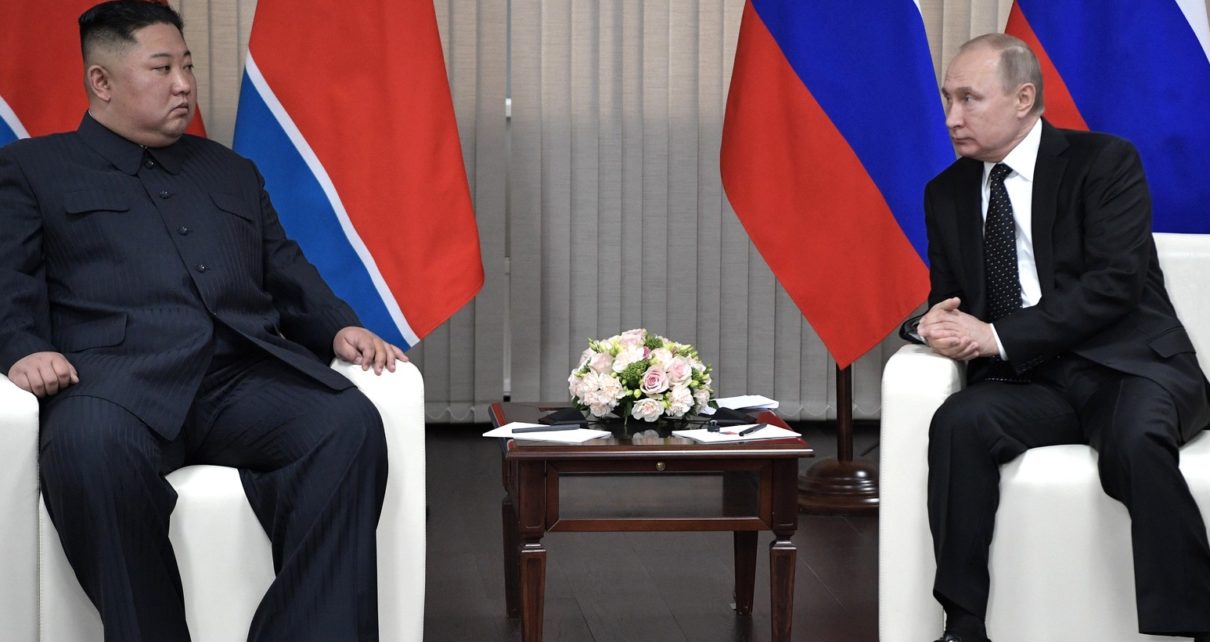“In this episode of the NAOC podcast, Erik interviews David Oliver, a GeoPolitical Strategy Expert, on current events amongst NATO nations and the latest geopolitics involving Russia, China, and beyond. David has over 25 years of advising across sectors as diverse as finance, energy, mining, pharmaceuticals. He started his career in British Politics before moving Read More…
Tag: NATO
Bridging Shortfalls: An Analysis of the Strategic Exchange between Russia and Iran
Amidst the tumult of conflict in Ukraine and instability in the Middle East, the partnership between Russia and Iran is at a historic juncture and is ripe for potential multifaceted cooperation. With Western sanctions, defence production and supply vulnerabilities persist for both these states, which seek to advance their respective interests and authoritarian model of Read More…
NATO’s 2% Spending Minimum. Will Canada Ever Make It?
On April 8th, 2024, Prime Minister Justin Trudeau announced a new federal investment plan in defence spending for the 2024 federal budget. The “Our North: Strong and Free” defence policy update proposed to raise Canada’s defence spending-to-GDP ratio to 1.76% by 2029-30, amounting to $8.1 billion over five years, and $73 billion over 20 years, in new Read More…
An Explanation of Western and Russian Interests and Aims in the Francophone West African “Coup Belt”
Since 2020, there have been seven coups in six French-speaking West African countries. Many of them have involved conflicts between military groups or established governments supported by France, and by extension the West and NATO, and rebel groups or juntas supported by Russia. France’s role as the main patron of established power in these countries Read More…
A Breakdown of the United States’ $61 Billion Aid Package to Ukraine and Lessons for Canada
Since the Russian invasion in 2022, Ukraine has been a significant recipient of aid from the United States and dozens of other NATO member states, including Canada. This past April, after a six-month delay in Congress, the United States’ legislature voted to pass a much-anticipated $61-billion dollar aid package to Kyiv, its most extensive contribution to date. Ukraine’s president, Volodymyr Read More…
Canada’s Need For A Comprehensive Arctic Strategy Amid Russian And Chinese Threats
On August 26, 2022, NATO’s Secretary General Jens Stoltenberg warned Canada’s Prime Minister Justin Trudeau about Russia and China’s investments and intentions to build military, commercial, and industrial capacities in the Arctic. This is not new information. Russia and China made their Arctic strategies publicly available in 2009 and 2018, respectively. News articles frequently detail their interests and successes in the region. Despite this, Canada has Read More…
Rogue Allies: A Partnership of Desperation, Russia and North Korea
As Russia experiences growing isolation since its invasion of Ukraine, Moscow has sought to deepen its relationship with the Democratic People’s Republic of Korea (DPRK). This relationship, which had previously collapsed with the Soviet Union’s dissolution in 1991, has witnessed a prominent resurgence. The new relationship is marked by secrecy and mutual assistance aimed at Read More…
NATO Countries Seek to Import Electricity from the Caspian Sea Region
Dr. Robert Cutler discusses recent developments in the cooperation of Azerbaijan with European and NATO energy policy.
International and Security Benefits of an Active Canadian Role in Venezuela
Many Venezuelans are eagerly hoping the election July 8, 2024 can be used to restart the rule of law and democratic norms in their country. Why should Canada actively support this process? Under socialist President Nicolas Maduro, during the 2010s, Venezuela became known internationally as the most left-wing country in Latin America, with the exception Read More…
The Polycrisis: Behind the Buzzword
Last year, a new buzzword gained significant traction across the international community. Referred to as the “polycrisis,” this key term started circulating across media publications and research institutes before finding its way to the Swiss Alps, where it took center stage. At the 53rd World Economic Forum Annual Meeting held in Davos—a flagship conference dedicated Read More…










